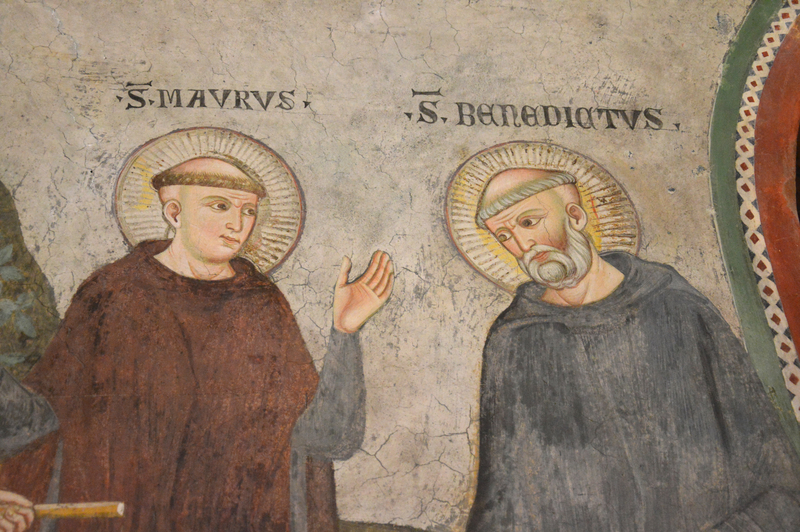The Fifth Degree of Humility

2 Feb. 3 June. 3 Oct.
The fifth degree of humility is, not to hide from one’s Abbot any of the evil thoughts that beset one’s heart, or the sins committed in secret, but humbly to confess them. Concerning which the Scripture exhorteth us, saying: “Make known thy way unto the Lord, and hope in Him” (Psalm 36:5). And again: “Confess to the Lord, for He is good, and His mercy endureth for ever” (Psalm 105:1; Psalm 117:1). So also the prophet saith: “I have made known to Thee mine offence, and mine iniquities I have not hidden. I will confess against myself my iniquities to the Lord: and Thou hast forgiven the wickedness of my heart” (Psalm 31:5).
Today’s passage from the Holy Rule tells us much about Saint Benedict’s understanding of the work of the abbot. The Fifth Degree of Humility suggests that the greater part of the abbot’s time is spent in listening to his monks tell him their thoughts. The abbot is not, first of all, an administrator; he is charged with the care of souls. Saint Benedict, in fact, says in Chapter II:
Above all let him not, overlooking or under-valuing the salvation of the souls entrusted to him, be too solicitous for fleeting, earthly, and perishable things; but let him ever bear in mind that he hath undertaken the government of souls, of which he shall have to give an account.
The abbot, precisely because he holds the place of Christ in the monastery, is a mediator. To his monks, the abbot is the listening ear of God; and in the presence of Our Lord, he is the listening ear of the community. As a mediator the abbot is bound to cultivate a double openness: openness to his sons on behalf of God, and openness to God on behalf of his sons. The abbot speaks to God on behalf of his sons; and he speaks to his sons on behalf of God.
The abbot listens to his sons; he takes to heart their troubles, their temptations, their struggles, and their joys. All that he hears from his sons, he carries with him into the presence of Our Lord. What is told to the abbot is, by means of his mediation, told to the Lord. What a monk entrusts to his abbot is, by his mediation, entrusted to the Lord. This is the great operative principle of sacramentality that flows from the mystery of the Incarnation.
Our Declarations on the Rule of Saint Benedict wisely say:
18. Acting in all things as a father, the Prior will make himself available to his monks and will spend his time and energy generously to foster charity, unity, and peace among them. The monks will, in turn, obey the Prior, respect him, and love him with sincere filial affection. They will approach the Prior with confidence and base their relationship with him not on any natural affinities or antipathies, but on the virtue of faith in Christ Jesus, Whom the Prior represents.
19. By a faithful and generous commitment of his time to adoration of the Most Holy Sacrament, the Prior will set, each day, an example of the zeal for reparation and for the sanctification of Christ’s priests that ought to burn in the heart of each one of his monks.
